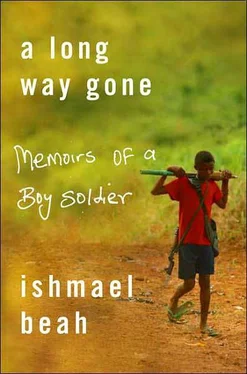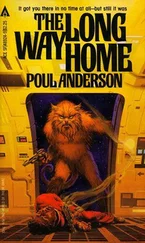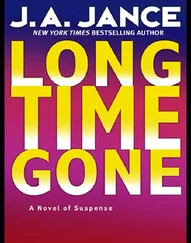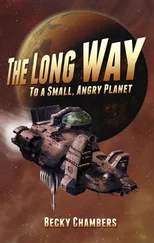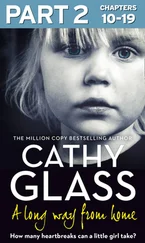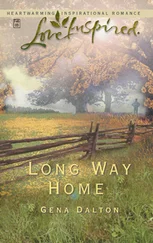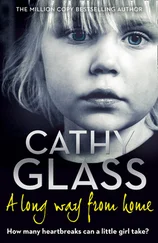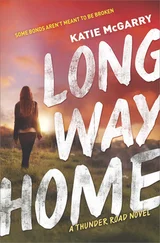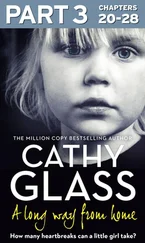At the last roadblock a soldier asked me to put my hands on my head so that he could search me. When I raised my hands, my pants fell down and some of the passengers laughed. The soldier picked up my pants and tied them with a shoelace that he had in his pocket. After he was done, he put his hands in my pocket and took out my passport. He flipped the pages and gave it back to me. I followed behind the people who waited in line to get their entry stamps. I was shaking with anger, but I knew I had to calm myself down if I wanted to make it into Conakry. I overheard people saying that the cost of the entry fee was the equivalent of three hundred leones. I had only a hundred leones and needed it for the rest of my journey. What am I going to do? I thought. I had come all this way for nothing. I couldn’t even afford to return to Freetown if I wanted to. Tears had begun to form in my eyes. I was nervous and couldn’t see a way out of this. I was beginning to feel anxious when a man whose passport had just been stamped accidentally dropped two of the many bags he carried as he was going around the checkpoint to reboard the bus. I hesitated for a bit but decided to take the chance. I left the line and picked up his bags, following him to the bus. I sat in the backseat, slouching in my seat, and peeked to see if the soldiers were looking in my direction. I sat on the bus until everyone had reboarded it; the soldiers didn’t come looking for me. The bus began to pull away slowly and then gathered speed. I had entered the country illegally, which I knew would later become a problem.
As the bus headed for Conakry, I began to worry, since I didn’t actually know what to do once I got there. I had heard that the Sierra Leonean ambassador let refugees sleep temporarily in the compound of the embassy, but I had no idea where the embassy itself was located. I was sitting next to a Fulani fellow by the name of Jalloh, who said he had lived in Freetown. We talked about what the war had done to the country. Afterward, he gave me his phone number and asked me to call him if I needed help getting around the city. I wanted to tell him that I had no place to stay, but he got off before I could summon the nerve to confide in him. I looked about the bus for the Sierra Leonean man I had bumped into but I couldn’t find him. A few minutes later, the bus came to a halt at a huge station, its final destination. I got out and watched everyone go. I sighed and placed my hands on my head, then walked to a bench and sat down. I covered my face with my hands. “I can’t sit here all night,” I kept mumbling to myself.
There were lots of taxis, and all the people who arrived at the bus station took them. I didn’t want to stand out as a lost foreigner, so I took a taxi, too. The driver said something in French. I knew that he was asking where I wanted to go. “Sierra Leone consulate, ahh, embassy,” I told the driver. I looked out the window at the utility poles and the sloppily hung streetlights; their lights seemed brighter than the moonlight. The taxi stopped in front of the embassy and the driver pointed to the green, white, and blue flag to make sure that I was at the right place. I nodded and paid him. When I got out, the guards at the embassy door, speaking Krio, asked me for my passport. I showed it to them and they let me into the compound.
Inside were more than fifty people, probably in the same situation as I. Most were lying on mats in the open compound. Their bundles or bags stood next to them. Others were removing their mats from their luggage. I assumed people only slept here at night and went out during the daytime. I found a spot in the corner, sat on the ground, and leaned against the wall, breathing heavily. The sight of all these people reminded me of a few villages I had passed through while running away from the war. I was scared and worried about what turmoil the next day might bring. Nonetheless, I was happy to have made it out of Freetown, to have escaped the possibility of becoming a soldier again. This gave me some comfort. I took out the remaining raw rice from my bag and started chewing on it. There was a woman sitting with her two children, a boy and a girl no more than seven years old, a few paces from me. She was whispering a story to them, as she didn’t want to disturb other people. As I watched the elaborate movements of her hands, the tide of my thoughts took me to a particular telling of a story I had heard many times as a boy.
It was nighttime and we sat by the fire stretching our arms toward the flames as we listened to stories and watched the moon and the stars retire. The red coal from the firewood lit our faces in the dark and wisps of smoke continuously rose toward the sky. Pa Sesay, one of my friends’ grandfather, had told us many stories that night, but before he began telling the last story, he repeatedly said, “This is a very important story.” He then cleared his throat and began:
“There was a hunter who went into the bush to kill a monkey. He had looked for only a few minutes when he saw a monkey sitting comfortably in the branch of a low tree. The monkey didn’t pay him any attention, not even when his footsteps on the dried leaves rose and fell as he neared. When he was close enough and behind a tree where he could clearly see the monkey, he raised his rifle and aimed. Just when he was about to pull the trigger, the monkey spoke: ‘If you shoot me, your mother will die, and if you don’t, your father will die.’ The monkey resumed its position, chewing its food, and every so often scratched its head or the side of its belly.
“What would you do if you were the hunter?”
This was a story told to young people in my village once a year. The storyteller, usually an elder, would pose this unanswerable question at the end of the story in the presence of the children’s parents. Every child who was present at the gathering was asked to give an answer, but no child ever did, since their mother and father were both present. The storyteller never offered an answer either. During each of these gatherings, when it was my time to respond, I always told the storyteller that I would think it over, which of course was not a good enough answer.
After such gatherings, my peers and I—all the children between the ages of six and twelve—would brainstorm several possible answers that would avoid the death of one of our parents. There was no right answer. If you spared the monkey, someone was going to die, and if you didn’t, someone would also die.
That night we agreed on an answer, but it was immediately rejected. We told Pa Sesay that if any of us was the hunter, we wouldn’t have gone hunting for monkeys. We told him, “There are other animals such as deer to hunt.”
“That is not an acceptable answer,” he said. “We are assuming that you as the hunter had already raised your gun and have to make the decision.” He broke his kola nut in half and smiled before putting a piece in his mouth.
When I was seven I had an answer to this question that made sense to me. I never discussed it with anyone, though, for fear of how my mother would feel. I concluded to myself that if I were the hunter, I would shoot the monkey so that it would no longer have the chance to put other hunters in the same predicament.
It is believed, though not recorded in written form, that the Bullom (Sherbro) people were present along the coast of Sierra Leone before the 1200s, if not earlier—before European contact with Sierra Leone. By the beginning of the 1400s, many tribes from other parts of Africa had migrated and settled in what came to be known as Sierra Leone. Among these tribes were the Temne. They settled along the northern coast of present-day Sierra Leone, and the Mende, another major tribe, occupied the south. There were fifteen additional tribes scattered in different parts of the country.
Читать дальше
